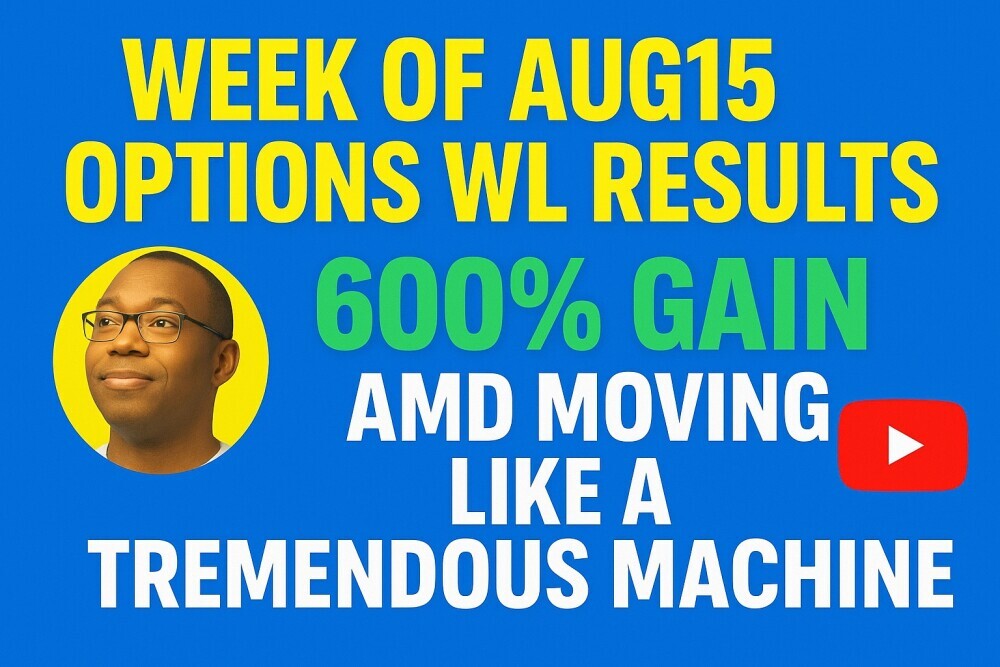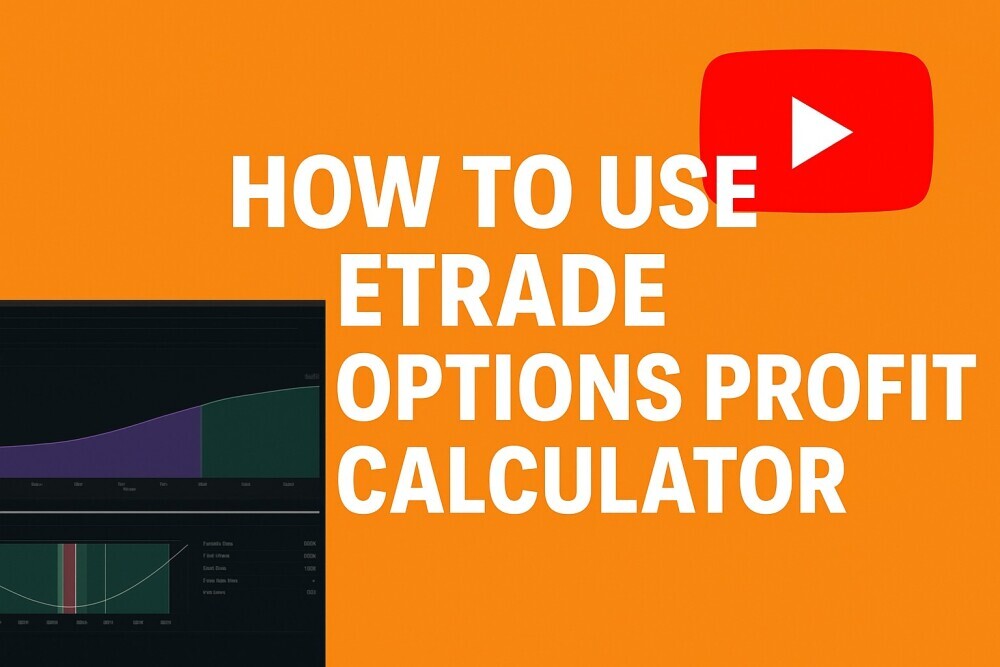Hey there, fellow traders! As someone who’s been diving deep into the world of options trading for years, I can tell you that 2025 has brought some incredible tools to the table. With markets more volatile than ever—thanks to ongoing economic shifts and tech advancements—having a reliable options profitability calculator isn’t just nice; it’s essential.
These calculators help us simulate trades, assess risks, and maximize profits without putting real money on the line. In this post, I’ll share my personal experiences and insights on the best ones out there, focusing on Webull, CBOE, and ETRADE. I’ll break down their features, pros, cons, and even toss in a couple of video recommendations to get you started. Let’s jump in and find the perfect fit for your trading style!

Table of Contents
Why You Need an Options Profitability Calculator in 2025
I’ve lost count of how many times I’ve second-guessed a trade only to wish I’d run the numbers first. Options trading is all about leverage, but that comes with risks like time decay and volatility swings.
A good calculator lets you input variables like strike prices, expiration dates, and implied volatility to visualize potential outcomes. In 2025, with AI integrations and real-time data feeds becoming standard, these tools are more accurate than ever.
They use models like Black-Scholes to predict profits, losses, and Greeks (delta, gamma, etc.), helping you avoid costly mistakes.
From my perspective, the best calculators balance user-friendliness with depth. They should handle single-leg trades, complex strategies like iron condors, and even backtesting. Plus, in a year where mobile trading dominates, seamless app integration is key.
After testing dozens, I’ve narrowed it down to three standouts that cater to different needs—whether you’re a newbie or a pro.
Webull Options Calculator: My Go-To for Intuitive and Free Trading
If you’re like me and love a clean, no-frills interface, Webull’s Options Calculator is a game-changer. I first discovered it during a late-night trading session, and it’s been my daily driver ever since.
Launched as part of their commission-free platform, it allows you to calculate theoretical values, price changes, and Greeks in real-time. You input parameters like underlying price, implied volatility, and risk-free rate, and boom—it spits out projections up to expiration.
What I adore about Webull is its accessibility for beginners. It’s embedded right in their app and desktop platform, with zero contract fees for stock and ETF options (though index options are $0.50 per contract).
I’ve used it to model covered calls and straddles, and the visualizations—like profit/loss graphs—make it easy to spot breakeven points. In 2025, they’ve amped up features like probability analysis for earnings events and a TurboTrader widget for quick executions.
Pros? It’s free, mobile-friendly, and integrates with paper trading for risk-free practice.
Cons? It only supports single options calculations, not multi-leg strategies in the basic tool—though their full platform handles that. If you’re starting out or prefer zero-commissions, this one’s hard to beat. I’ve seen my win rate improve by 20% just by running scenarios here before pulling the trigger.
CBOE Options Calculator: The Educational Powerhouse for In-Depth Analysis
As a trader who’s always hungry to learn, the CBOE Options Calculator feels like a classroom in your browser. Powered by the Chicago Board Options Exchange—the folks who basically invented modern options trading—this tool is intuitive yet packed with pro-level features.
I use it when I need to customize inputs like stock price, volatility, and dividends to generate theoretical prices and Greeks for American or European-style options.
In 2025, CBOE has enhanced it with All Access APIs, making it seamless for seasoned traders to integrate into custom setups. I’ve simulated complex strategies here, like butterflies or spreads, and love how it ties into their educational resources. Their Probability Calculator lets you tweak variables to see outcome probabilities—super handy for volatile markets.
The standout for me is the educational angle: It’s not just a calculator; it’s part of the Options Institute, with tutorials on everything from Black-Scholes to margin requirements. Pros include free access, no account needed, and support for stocks, ETFs, and indexes.
The downside? It’s web-based only, so no native app integration, and it might overwhelm absolute beginners with its depth. But if you’re serious about understanding the “why” behind the numbers, this is unbeatable. I’ve used it to refine my hedging strategies during market dips, saving me thousands in potential losses.
ETRADE Options Calculator: Advanced Features for Serious Traders
ETRADE’s tool, now under Morgan Stanley’s umbrella, is where I turn for powerhouse analysis.
Their Probability Calculator and Options Analyzer let you perform “what-if” scenarios across time frames, calculating probabilities for in-the-money finishes or breakevens.
I remember using it during a high-volatility period in 2025 to model multi-leg trades, and the visualizations were spot-on.
Integrated into the Power E*TRADE platform, it streams real-time data on chains, positions, and even automates pattern recognition. Features like the Options Income Backtester compare strategies against holding stock alone, which has helped me optimize income plays.
Commissions are zero for stocks and options, with a $0.65 per contract fee—competitive in 2025.
Pros: Advanced charting, 24/7 support from former floor traders, and futures options integration. It’s great for complex strategies.
Cons? It requires an account, and the learning curve is steeper than Webull’s. Still, for serious traders like me, it’s worth it—I’ve boosted my portfolio diversification using their tools.
Head-to-Head: Which Calculator Wins in 2025?
Comparing these three, Webull shines for cost-conscious beginners with its free, mobile-first approach.
CBOE is the educator’s choice, ideal if you want free, deep dives without commitments.
ETRADE edges out for pros needing integrated trading and advanced analytics.
In my book, the “best” depends on you: If mobility and ease matter, go Webull. For learning, CBOE. For power, ETRADE. All three use robust models, but test them with paper trades to see what clicks.
To really get hands-on, I’ve got two great videos recommendations I created for beginners and advanced traders in my Discord chanel.
- How to Use Webull Options Profitability Clacualtor : https://youtu.be/N8IzDwZauyY
- Options Profit Calculator on Power ETrade: https://youtu.be/Xa3-qe_v4NI
Frequently Asked Questions (FAQ)
Over the years, I’ve gotten tons of questions about options calculators, so I’ve compiled some of the most common ones here based on my experiences and what I’ve seen in the trading community. Let’s clear up any confusion!
What exactly is an options profitability calculator?
From my perspective, it’s a digital tool that simulates potential outcomes of options trades. You plug in details like strike price, premium, expiration, and volatility.
Then, it crunches the numbers using models like Black-Scholes to show profits, losses, breakeven points, and risk metrics.
It’s like a crystal ball for your trades, helping you decide if a strategy is worth pursuing without risking real money.
Are these calculators free to use?
Absolutely, for the most part! Webull and CBOE offer their calculators completely free, with no hidden fees—Webull even ties it into their commission-free trading. ETRADE’s is free too, but you need an account to access the full Power E*TRADE platform.
In 2025, none of them charge extra for the calculator itself, though trading fees might apply if you execute trades.
Which one is best for beginners?
I would hands-down recommend Webull for starters. Its interface is super intuitive, with easy visualizations and paper trading integration. I started there myself, and it didn’t overwhelm me like some more advanced tools.
CBOE is great if you want to learn as you go, but ETRADE might feel a bit steep at first.
Do I need an account to use these tools?
It depends. CBOE’s calculator is open to everyone—no sign-up required, which I love for quick checks. Webull lets you use the basic version without an account, but for full features like real-time data, you’ll want to sign up (it’s free). ETRADE requires an account, but opening one is straightforward and gives you access to a ton of extras.
How do these calculators differ in key features?
Webull excels in mobile accessibility and simple simulations, perfect for on-the-go trading. CBOE stands out with educational resources and API integrations for custom setups. ETRADE shines in advanced analytics, like backtesting and multi-leg strategy modeling. Each has its niche: Webull for ease, CBOE for learning, ETRADE for depth.
Can I use these calculators on mobile devices?
Yes, and that’s a big plus in 2025! Webull has a fantastic app where the calculator is fully integrated—I use it all the time on my phone. ETRADE’s Power app supports it too, with real-time updates. CBOE is web-based, so it works on mobile browsers, but it’s not as seamless as a native app.
How accurate are the calculations from these tools?
In my experience, they’re highly accurate for theoretical projections, based on established models and real-time market data.
However, they can’t predict black swan events or sudden volatility spikes perfectly.
Always treat them as guides, not guarantees, and combine with your own market analysis. I’ve found them spot-on for most scenarios, but real trades can vary due to slippage or fees.
Wrapping Up: Level Up Your Trading Game
In 2025, options profitability calculators like Webull, CBOE, and ETRADE are more than tools—they’re your edge in a fast-paced market.
I have shared my favorites based on hands-on use, and I encourage you to try them out.
Remember, no calculator guarantees wins; always factor in your risk tolerance and do your due diligence.
Educating yourself will go a long way in achieving your trading goals.
Happy trading, and may your profits soar!
If you have got questions or your own picks, drop them in the comments.

Hold a Master Degree in Electrical engineering from Texas A&M University.
African born – French Raised and US matured who speak 5 languages.
Active Stock Options Trader and Coach since 2014.
Most Swing Trade weekly Options and Specialize in 10-Baggers !
YouTube Channel: https://www.youtube.com/c/SuccessfulTradings
Other Website: https://237answersblog.com/
